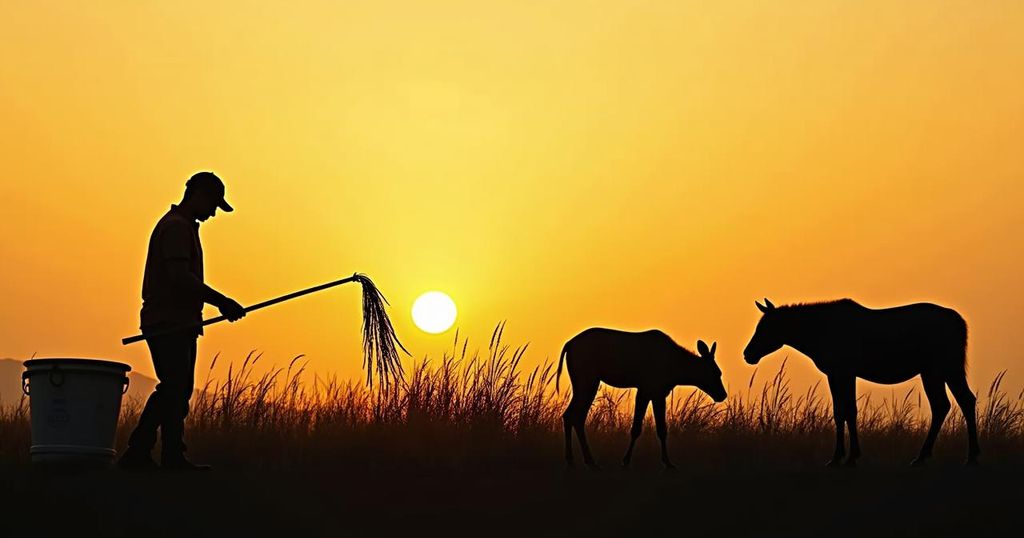India’s Easing of Rice Exports: Positive Impacts on South African Market

India’s easing of rice export restrictions has been welcomed in South Africa, where it is projected to lower food costs significantly. Major importers have already begun placing orders in anticipation of increased supplies. As the new rice harvest season approaches in India, the global rice market is expected to stabilize, contributing positively to local demand and pricing structures.
India’s decision to ease restrictions on rice exports has been positively received in South Africa, where the demand for rice is significant. Pranav Thakkar of Dev International, one of South Africa’s largest importers of Indian products, emphasized, “It is welcoming news for all the importers like us, as South Africa imports roughly 10 million tonnes of rice every year. After Thailand and Vietnam, which account for 70 percent of imports of rice in South Africa, India is the next biggest exporter of rice to South Africa.” He indicated that the lifting of the ban on exporting short-grain and white rice is expected to bolster India’s rice exports and meet the needs of southern African countries. Thakkar confirmed that orders were promptly placed upon hearing the news, with containers already dispatched. Additionally, he noted that this development is creating a ripple effect in the global markets, leading to a decline in rice prices. The reopening for rice exports coincides with new harvests expected in India around October and November, crucial for meeting the regional demand in countries reliant on Indian rice. Furthermore, Wandile Sihlobo, Chief Economist at the South African Agricultural Business Chamber, corroborated the positive outlook, stating, “Global rice prices have softened notably in recent weeks because of expected ample global supplies. The news that India is likely to ease rice export restrictions as supply increases and that its elections have concluded has perhaps also helped.” He remarked that India’s previous ban on non-basmati white rice and broken rice had a substantial impact, as this category represented approximately 45 percent of India’s annual rice exports, which total 22 million tonnes. Prior to the easing of restrictions, global rice prices soared due to fears of supply shortages following India’s initial export ban. Although India contributes to around 26 percent of the global rice supply, adjustments in supply chains prevented a major rice crisis. As South Africa relies completely on imports for its rice, the lifting of this ban is particularly favorable, with the nation importing around a million tonnes annually. In the restaurant industry, operators have expressed relief over the anticipated price decline of rice, which has traditionally been a staple in many South African households, especially in Indian cuisine. Restaurant owner Mehmood Latif indicated that costs had risen significantly, as patrons increasingly favored rice with their dishes. A customer, Anita Singh from Shama’s retail store, remarked on the challenges of maintaining rice consumption amid rising prices, stating, “But you cannot escape using rice for the weekly biryanis at home, so this coming price drop is good news.”
The easing of India’s rice export restrictions is particularly significant for South Africa, which has a high demand for imported rice. South Africa relies heavily on rice imports, with annual needs standing at approximately 10 million tonnes. India serves as a major supplier after Thailand and Vietnam, making this development crucial for the local market. The recent policy shift from India on rice exports is expected to influence global and regional prices, providing relief to South African consumers and businesses reliant on rice staples.
The easing of rice export restrictions by India is poised to have a positive impact on South Africa’s import market, with expectations of reduced prices benefiting both consumers and businesses. Key importers have already begun to make orders, anticipating an influx of Indian rice amidst new harvests. The overall global rice market is expected to stabilize as supply increases and prices decline, preventing potential shortages and benefiting South African consumers who have faced escalating costs.
Original Source: m.economictimes.com







